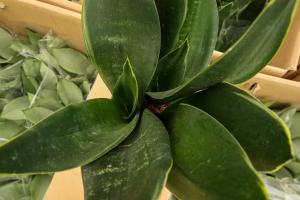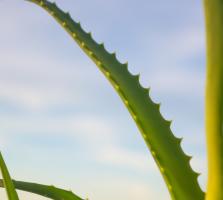Can Pool Water Kill Plants?
Pool water is a mix of chemicals and minerals that help keep pools clean and hygienic. However, these same chemicals and minerals can have detrimental effects on plant life. This leaves many plant owners wondering if pool water can kill their plants, be it accidentally or through intentional irrigation. Here's what you need to know:
Chemical Composition of Pool Water
Pool water contains a variety of chemicals and minerals, such as chlorine, calcium, phosphate, and sodium. While these are essential for maintaining a clean and safe swimming environment, they can be toxic to plants when used in excessive amounts or concentrations.
Chlorine, for example, is commonly used to disinfect pool water, but it can also damage plant tissue and inhibit photosynthesis if it comes into direct contact with leaves or roots. Similarly, calcium and sodium may leave behind salt deposits in the soil, making it difficult for plants to absorb nutrients and water.
The Effects of Pool Water on Plants
The effects of pool water on plants depend on various factors, such as the type of plant, the concentration and duration of exposure, and the pH and alkalinity of the water. Some plants are more sensitive to chemicals and minerals than others, while some can tolerate them to a certain extent.
When exposed to pool water, plants may exhibit various symptoms of stress or damage, such as yellowing or browning of leaves, stunted growth, wilting, and even death in severe cases. Additionally, pool water may alter the pH or nutrient balance of the soil, making it unsuitable for plant growth and survival.
Preventing Damage to Plants from Pool Water
If you have plants near your pool or plan to irrigate them with pool water, there are several steps you can take to minimize the risk of damage:
Keep the pool water pH and alkalinity levels in check, ideally between 7.2 and 7.8 pH and 80 to 120 alkalinity. This can help reduce the risk of chemical imbalances that may harm plants.
Water the plants with a hose or sprinkler rather than pouring the water directly from the pool, as this can help dilute the chemical concentration and prevent direct contact with leaves or roots.
Consider using a pool cover or fence to reduce water splashes or runoff into plant areas, or plant trees or shrubs as a buffer between the pool and the plants.
Alternate between pool and non-pool water for irrigation, or use a pool water treatment system to filter out excess minerals and chemicals before watering plants.
Conclusion
While pool water can harm plants if used improperly, it is not necessarily deadly or irreparable. By taking the necessary precautions and adjusting the pH, alkalinity, and watering methods, you can minimize the risk of damage and maintain a healthy balance between your pool and plants.

 how many times do yo...
how many times do yo... how many planted tre...
how many planted tre... how many pine trees ...
how many pine trees ... how many pecan trees...
how many pecan trees... how many plants comp...
how many plants comp... how many plants can ...
how many plants can ... how many plants and ...
how many plants and ... how many pepper plan...
how many pepper plan...
































